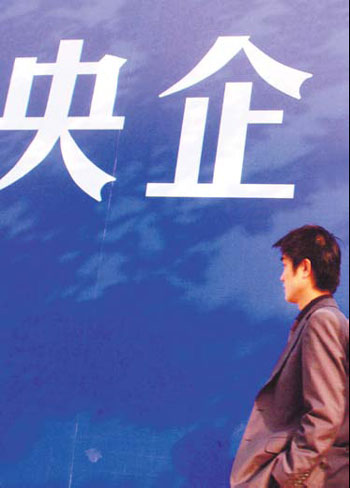

 |
The State Council has approved a long-awaited blueprint to overhaul State-owned enterprises (SOEs), reported South China Morning Post citing inside source.
The shake-up, which aims to put greater distance between government and the day-to-day commercial operations of State firms, will include setting up two new Temasek-style sets of companies that will channel funds to SOEs and pressure them to turn a profit, said the newspaper on Saturday.
Temasek is a sovereign fund investment company in Singapore with a broad portfolio.
The "State-owned capital operating companies" would allocate state funds to monopolistic SOEs in mission-critical sectors, and mainly manage SOEs' stock rights rather than directly run market-driven industries, according to the newspaper.
Under the new system, SOEs will in return be able to make more of their own business decision and their board of directors will be able to make the manager-level hiring.
However, party leadership sent by the State-owned Assets Supervision and Administration Commission (Sasac) to SOEs remains unchanged, said the Post.
The Third Plenum of the Communist Party of China's 18th Central Committee in November 2013 set the agenda for a new round of SOEs reform. Since then, China has been pressing ahead with plans to expand mixed ownership of SOEs to boost economic efficiency.
According to estimates by Gavekal Dragonomics, an economic research company in Beijing, the productivity gap between State-owned and private companies has widened since the financial crisis in 2008, with an average return on assets for state entities at about 4.6 percent, compared with 9.1 percent for private companies.
 Female soldiers add color to military parades
Female soldiers add color to military parades Taiwan campus belle with gorgeous look
Taiwan campus belle with gorgeous look  Stunning photos of China’s fighters and airborne troops
Stunning photos of China’s fighters and airborne troops Mums stage breastfeeding flash mob
Mums stage breastfeeding flash mob PLA South China Sea Fleet conducts live fire exercise
PLA South China Sea Fleet conducts live fire exercise Beauty of Tsinghua University transforms into car model
Beauty of Tsinghua University transforms into car model Official shot having sex with two college girls
Official shot having sex with two college girls Moscow “spider-man” climbs Chinese skyscraper
Moscow “spider-man” climbs Chinese skyscraper No cleavage allowed at China’s largest gaming expo this year
No cleavage allowed at China’s largest gaming expo this year Shared destiny for Asia: FM
Shared destiny for Asia: FM Web police stations not to curb expression
Web police stations not to curb expression More civil servants leaving their jobs for better pay, sense of achievement
More civil servants leaving their jobs for better pay, sense of achievement Japan struggles to deal with legacy of comfort women system, compensation
Japan struggles to deal with legacy of comfort women system, compensationDay|Week